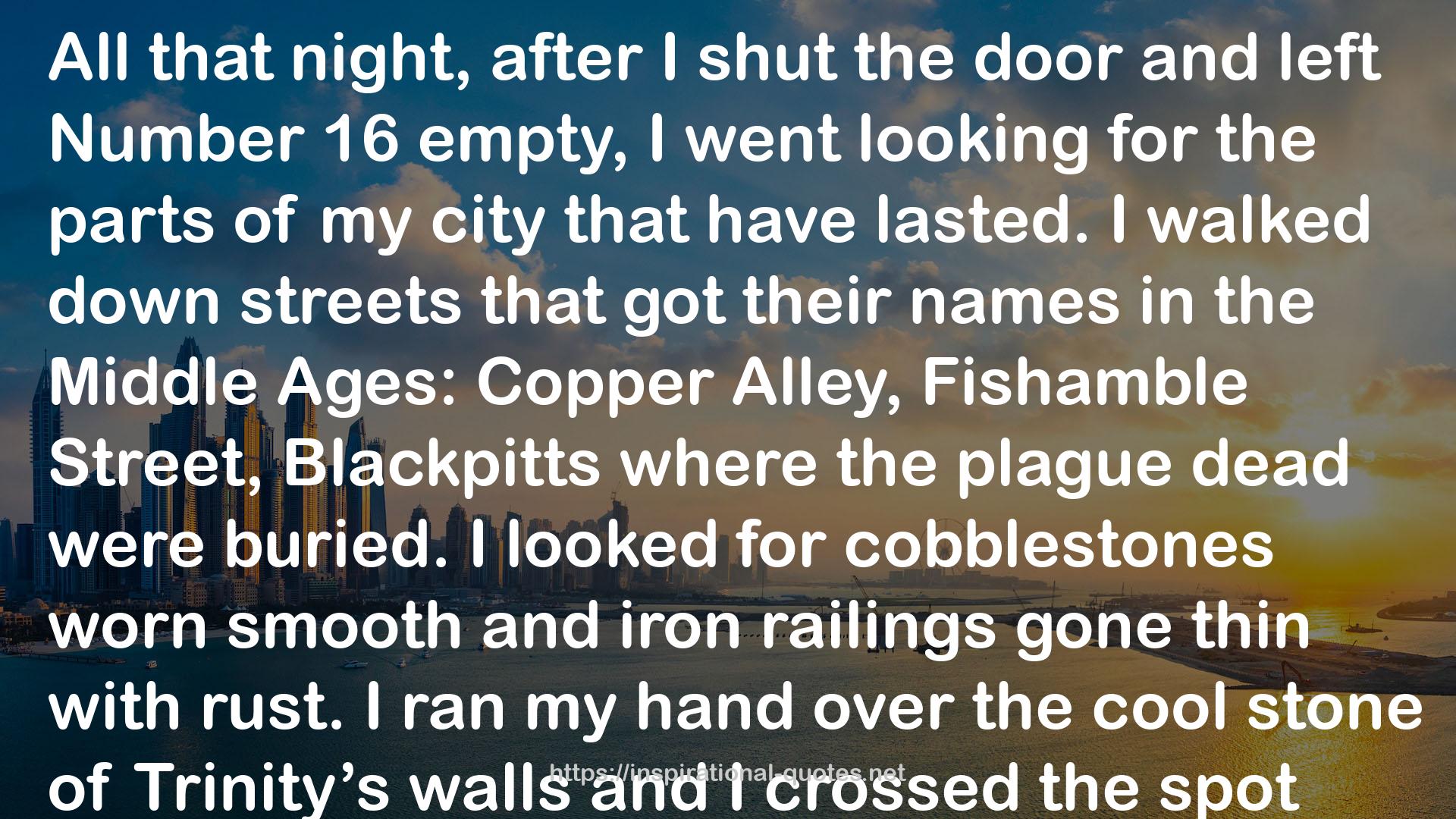" All that night, after I shut the door and left Number 16 empty, I went looking for the parts of my city that have lasted. I walked down streets that got their names in the Middle Ages: Copper Alley, Fishamble Street, Blackpitts where the plague dead were buried. I looked for cobblestones worn smooth and iron railings gone thin with rust. I ran my hand over the cool stone of Trinity’s walls and I crossed the spot where nine hundred years ago the town got its water from Patrick’s Well; the street sign still tells you so, hidden in the Irish that no one ever reads. I paid no attention to the shoddy new apartment blocks and the neon signs, the sick illusions ready to fall into brown mush like rotten fruit. They’re nothing; they’re not real. In a hundred years they’ll be gone, replaced and forgotten. This is the truth of bombed-out ruins: hit a city hard enough and the cheap arrogant veneer will crumble faster than you can snap your fingers; it’s the old stuff, the stuff that’s endured, that might just keep enduring. I tilted my head up to see the delicate, ornate columns and balustrades above Grafton Street’s chain stores and fast-food joints. I leaned my arms on the Ha’penny Bridge where people used to pay half a penny to cross the Liffey, I looked out at the Custom House and the shifting streams of lights and the steady dark roll of the river under the falling snow, and I hoped to God that somehow or other, before it was too late, we would all find our way back home. "
― Tana French , Faithful Place (Dublin Murder Squad, #3)
